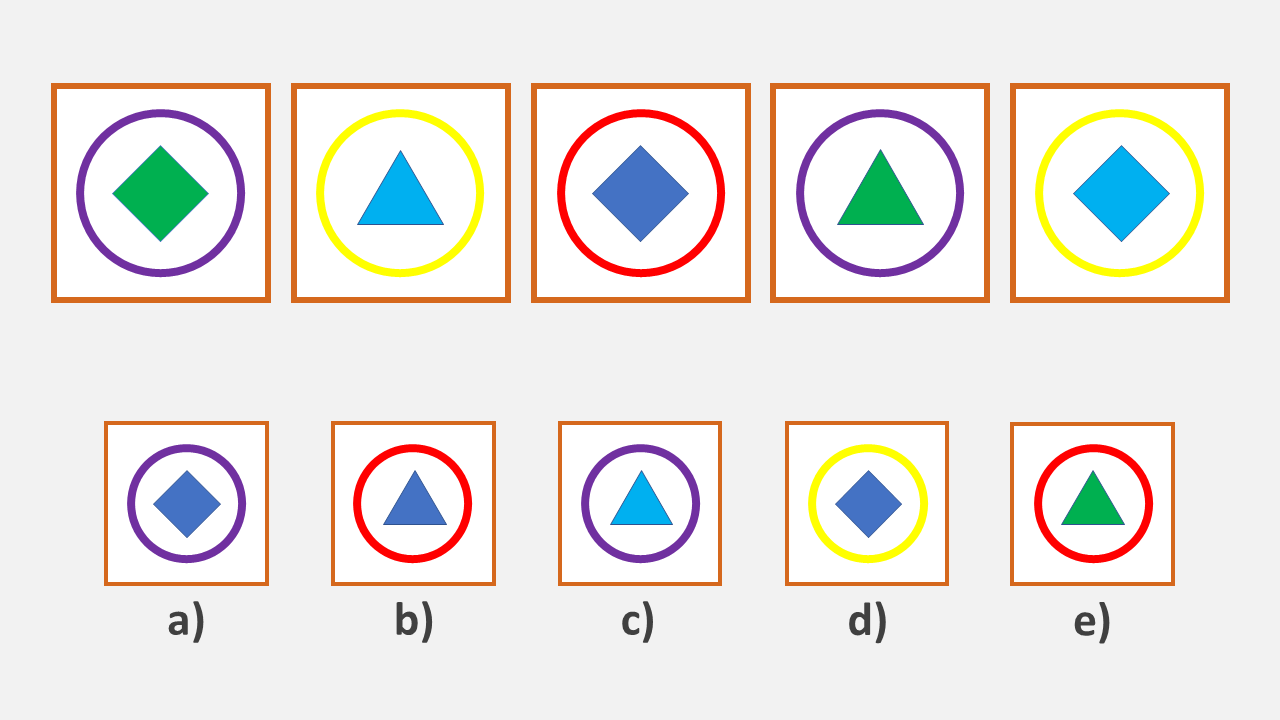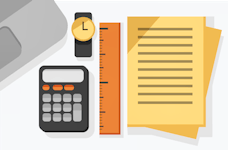A Guide to the Crossover Cognitive Aptitude Test: Tips & Examples
All products and services featured are independently selected by WikiJob. When you register or purchase through links on this page, we may earn a commission.
- What Is the Crossover Cognitive Aptitude Test?
empty
- The Crossover Cognitive Aptitude Test Format
empty
empty
empty
empty
- Example Crossover Cognitive Aptitude Test Answers
empty
empty
empty
empty
- CCAT Scoring System
- How to Pass the Crossover Cognitive Aptitude Test
- Frequently Asked Questions
- Final Thoughts
The Crossover Cognitive Aptitude Test is an employment test that evaluates critical thinking, problem-solving and cognitive ability.
The test is used by the online hiring platform Crossover as part of the series of online assessments it uses to see which candidates should be placed with its companies.
In this article, you will learn more about the Crossover Cognitive Aptitude Test in detail, as well as describing more about Crossover as a company and what it is looking for in talent.
This article will also cover the different sections of the assessment, give some examples of the types of question that you are going to face and get some tips to help you reach success.
What Is the Crossover Cognitive Aptitude Test?
The Crossover Cognitive Aptitude Test (CCAT), sometimes known as the Criteria Cognitive Aptitude Test, is an assessment that evaluates your ability to be able to think on your feet – much like an IQ test.
According to Criteria Corp., the test publishers, the CCAT is meant to assess and measure things like critical thinking and problem-solving skills – as well as learning ability and how a candidate can use new information.
This particular version of the Criteria test is used by Crossover.
What Is Crossover?
Crossover is an online hiring platform designed to connect companies with the talent they need; specifically for remote positions.
The Crossover platform acts as a contractor that matches candidates to a company that needs their talent for a certain period.
It isn’t a recruiter in a traditional sense – more a facilitator that screens potential candidates before allocating them opportunities or what is known as ‘tours’ with different companies.
The headquarters are in Austin, Texas, and it was founded back in 2014. Since then, Crossover has grown to have a global footprint, with 3,500 candidates in more than 100 countries.
The CCAT is part of the online assessment battery that candidates face when they sign up for the platform at Crossover.
Other tests that a candidate might take includes:
- Basic-Fit Questions
- English Assessment
- Tech Trial
Crossover uses the CCAT exam because the candidates who can demonstrate a high CCAT passing score on the test are considered to be quick learners, which makes them ideal for short term projects at companies.
Take a Practice Crossover Cognitive Aptitude Test on JobTestPrep
The Crossover Cognitive Aptitude Test Format
The CCAT assessment is a short, online timed test. The time limit for this test is just 15 minutes, and there are 50 questions to be answered, covering different aptitudes.
The format and the ‘quick-fire’ nature of the questions makes this a challenging psychometric test, but there are no penalties for a wrong answer – so you will want to attempt to answer as many as possible for the best results.
There are four types of multiple-choice questions on the CCAT, and they are as follows:
- Numerical reasoning
- Verbal reasoning
- Spatial reasoning
- Logical reasoning
Each question on the CCAT could be on any of the above topics, and this adds to the difficulty of the assessment.
Numerical Reasoning
In the numerical reasoning questions, you will be expected to be able to complete basic mathematical operations without a calculator (a calculator is not allowed in the test).
You will have several different types of question that involve numeracy, word problems, number series and basic algebra. You will also have some charts, tables and graph-based questions to answer.
Verbal Reasoning
In the verbal reasoning questions, there are several different types of question. Some of the questions might be regarding analogies or sentence completion, or you might have to identify synonyms and antonyms.
Some of the questions might be simply about vocabulary.
These questions in the test are all about your knowledge and aptitude with language.
Spatial Reasoning
In the spatial reasoning questions, several options are likely to come up. These are essentially abstract reasoning questions, all about finding the missing shape in a series, or in a matrix, or finding the shape that is the odd one out.
These questions are designed to see how well you can spot patterns and make decisions based on unfamiliar information.
Logical Reasoning
The logical reasoning questions will take the form of either syllogisms or seating arrangements. You will have to answer questions based on specific premises and statements being true and find the logical conclusion.
Some of the questions might ask you to arrange a seating plan based on a set of given information.
In these Crossover Cognitive Aptitude Test questions, you will be assessed on your ability to take specific information to reach a general conclusion.
Example Crossover Cognitive Aptitude Test Answers
Numerical Reasoning Example Question
40 is 20% of which of the following numbers?
a) 180
b) 200
c) 220
d) 240
e) 260
The words HABITUATE and ACCUSTOM are:
a) Similar
b) Contradictory
c) Unrelated
Find the next shape in the series below.

If the first two sentences below are true, is the third statement true?
All footballers work out at a gym.
Jason works out at a gym.
Jason is a footballer.
a) True
b) False
c) Uncertain
CCAT Scoring System
The scoring for the CCAT is actually quite straightforward. Scores come in two formats – a raw score, which is the total number of questions that you answered correctly, and a percentile score that demonstrates your performance in relation to other people taking the same test.
What is interesting about the CCAT is that although there is a maximum of 50 questions on the test, only about 1% of test takers will complete all questions in the allocated 15 minutes.
The average score for the CCAT is 24, but to be considered for the Crossover team, you will need to score at least 35 – and if you do not achieve that, you will not be considered for a position as part of the Crossover team.
You might be able to retake the assessment if you reapply to the business, but it is a better idea to perform at your best on the first try.
If you need to prepare for a number of different employment tests and want to outsmart the competition, choose a Premium Membership from JobTestPrep.
You will get access to three PrepPacks of your choice, from a database that covers all the major test providers and employers and tailored profession packs.

How to Pass the Crossover Cognitive Aptitude Test
Step 1. Get Familiar With the Test Format
The format of the CCAT, combined with the tight time limit, is what makes it a challenging test – so the more familiar you become with the test, the better you will perform.
You can become more familiar with the test format and question types by finding example questions and practice tests and looking for guides like this one online for helpful hints and tips.
Step 2. Take Crossover CCAT Practice Tests Online
Practice tests should be a part of your revision and preparation – and they can help in a number of ways.
Not only can they help you get more familiar with the test structure and format, but, by completing the assessments before you start revising, you can focus on any areas that you might struggle with.
These practice Crossover Cognitive Aptitude Test questions and answers will show you where you might need some more revision – this might be on the numerical questions or perhaps on the logical questions.
Step 3. Review Important Concepts for Each Topic
When you know the topics that are going to be featured on the CCAT (listed above), you can take some time to review the important facts related to them.
This might mean getting to grips with mental calculations or thinking about things like ratios and percentages – or perhaps you might want to look at antonyms and synonyms in more detail.
Having the focus of your practice test results to hand, you will know what the main areas you need to revise are, but that doesn’t mean you should ignore the other topics.
Step 4. Read and Play
There are ways of improving your cognitive abilities that don’t require hours of study or laborious revision – you can learn a surprising amount through what feels like play, too.
Things like word searches and puzzles, Sudoku and logic games can help, and you can even download apps to your smartphone that are designed as ‘brain training’ games.
Another way to get your brain working is to read more widely – you can pick up some non-fiction books about a subject that you are interested in or find some business journals to read.
This will widen your vocabulary, exposing you to different words and their synonyms and antonyms, as well as analogies.
Step 5. Get Enough Rest Before the Test
Testing of any kind needs your brain to be working – and that is especially true when it comes to the CCAT, as it is a test that has such a tight time limit.
Extensive studies have shown that lack of proper sleep is detrimental to cognitive ability.
When you know that you are facing a test, you want to make sure that you have had a good night’s sleep so that your brain can work effectively, firing on all cylinders.
Step 6. Don’t Get Stuck at Difficult Questions
The hardest part of the assessment is the 15-minute time limit, which means that you really don’t want to get stuck on the difficult questions.
You need to be able to answer quickly and move on – getting a correct score in the process.
The benefit of this test is that there is no negative marking – so you won’t lose a mark if you get a question wrong.
The best thing you can do if you are unsure of a question is to make an educated guess and move on to the next – you need to answer more than two questions a minute correctly to hit the requirements at Crossover.
The Crossover Cognitive Aptitude Test (CCAT) is a pre-employment assessment that is used to evaluate candidates for ‘tours’ with Crossover.
It is similar to an IQ test in that it assesses applicants based on their cognitive abilities, problem-solving and critical thinking, as well as their approach to learning and applying new knowledge.
The Crossover Cognitive Aptitude Test (CCAT) is a challenging test. The combination of many different types of question with a short time limit means that only about 1% of candidates will be able to answer all 50 questions.
The best way to pass, therefore, is to practice using resources like JobTestPrep, which has Criteria Crossover Cognitive Aptitude Test answers and practice questions.
The Criteria Crossover Cognitive Aptitude Test is difficult to pass, because you need to get as many questions right out of 50 as you can in just 15 minutes.
The average score in the assessment is 24; to be considered for a position with Crossover, you will need to score 35/50 correctly (which equates to the 85th percentile).
As part of your Crossover CCAT test preparation, you can use resources like JobTestPrep, where you will find detailed guides to the assessment, example questions with the Crossover Cognitive Aptitude Test answers provided and explained, and full-length practice tests.
There is also revision material and helpful tips and tricks for success.
The Crossover CCAT is timed; you will have 15 minutes to answer up to 50 questions on different cognitive abilities – numerical reasoning, verbal reasoning, spatial reasoning and logical reasoning.
This is where doing lots of Crossover CCAT test preparation will come in handy.
If you fail the Crossover CCAT, your application to work with Crossover will not be taken further.
The CCAT is an essential part of the recruitment process because they are looking for candidates who can offer specific skills alongside great learning and cognitive ability.
You can get example questions for the Crossover CCAT at JobTestPrep, and the benefit of these is that you will also get the Crossover CCAT test answers and the workings for finding the answers to help boost your knowledge.
Example questions are a great resource, but you will also find the guides and descriptions of each type of question helpful, as well as the full-length practice tests.
If you fail the Crossover CCAT, your application will be terminated. However, you may be allowed to reapply again after a certain time period (usually around six months) which means you can retake the test then.
The purpose of the Crossover CCAT is to evaluate candidates on their cognitive abilities and aptitudes, which includes things like critical thinking, logic and learning.
The CCAT is similar to an IQ test as it assesses cognitive skills like problem-solving, based on new information.
You are usually asked to take the Crossover CCAT in the early stages of the recruitment process at Crossover.
Success at the CCAT can be followed by other online tests – usually to gauge things like skill level and proficiency in certain areas like coding. You will also have at least one interview via Skype.
The Crossover CCAT has four different types of questions, as below:
- Numerical reasoning
- Verbal reasoning
- Spatial reasoning
- Numerical reasoning
All these questions have multiple-choice options for you to select the right answer from.
You can find a full guide for the Crossover CCAT at JobTestPrep.
There are detailed descriptions of all the different types of question, worked example questions with Crossover CCAT test answers, revision material and full-length Crossover CCAT Practice Tests – all designed to help you improve your score and overall performance.
Final Thoughts
The Crossover Cognitive Aptitude Test is a challenging assessment that is designed to evaluate candidates on their learning preferences, cognitive ability, critical thinking and problem solving.
The test is structured to have a very tight time limit – with only 15 minutes to answer up to 50 questions, it is no wonder that high scores are rare, and only 1% of test takers manage to answer all 50 questions.
The average score for the Crossover Cognitive Aptitude Test is 24, which means that you will have to practice, prepare and revise to ensure that you can reach the score of 35, which is known to be the minimum score that Crossover requires for the candidate to be taken further in the process.





